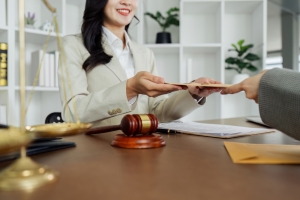Slip and fall accidents happen when you least expect them—at the grocery store, in a restaurant, or even walking through an office lobby. One minute, you're on your feet, and the next, you're dealing with pain, confusion, and mounting medical bills. But not every slip and fall leads to a successful legal claim. In fact, many victims find themselves asking the same question: Do I even have a case?
The truth is that personal injury law, especially premises liability, isn't always clear-cut. Whether your claim holds weight depends on several key factors. The answers to just five specific questions can help determine whether your case is strong, weak, or somewhere in between.
Austin is the capital city of Texas, United States. It is the cultural and economic center. Like any other city, people also face slip-and-fall cases every year here. If you're in this place and unsure where to begin the case, speaking with an experienced Austin slip and fall accident lawyer is a smart first move. They'll not only evaluate your claim but also help you navigate the complex legal maze that often follows these incidents.
Now, let's get into the five questions that decide whether your case is valid or not.
1. Was the Property Owner Negligent?
A fall by itself doesn't automatically make someone liable. The foundation of any slip and fall case lies in proving negligence. That means showing the property owner (or manager) failed to maintain reasonably safe conditions.
For example:
- Did they know about the spill and fail to clean it up?
- Were there broken tiles or uneven surfaces left unrepaired for days?
- Was proper signage missing during a wet floor mopping?
You have to prove that a hazardous condition existed and that the responsible party either knew—or should have known—about it and did nothing.
2. Did the Hazard Cause Your Fall?
Even if the property was unsafe, you must connect the dots. You'll need to prove that the hazardous condition directly caused your injury.
Let's say you slipped on a slick floor in a store. If you were wearing unstable shoes or running, the property owner might argue you contributed to the accident. A valid case hinges on causation—that the dangerous condition, not your actions, was the real reason for your fall.
This is where evidence is crucial. It includes:
- Surveillance footage
- Witness statements
- Incident reports
- Photos of the hazard
3. Were You Lawfully on the Property?
Your legal status on the property matters. Were you invited in as a customer? Were you there for business purposes? Or were you trespassing?
Property owners owe different levels of care depending on their status:
- Invitees (like shoppers) are owed the highest duty of care.
- Licensees (like social guests) also receive some protection.
- Trespassers, however, are offered minimal legal protections.
If you weren't legally allowed to be there, your ability to pursue a claim may be limited.
4. Did You Seek Medical Attention Right Away?
Delayed treatment can seriously weaken your claim. If you wait days to go to the doctor, the defense will argue that your injuries weren't that serious—or that something else caused them. Medical records are strong evidence. They show
- The extent of your injuries
- When and how the injury occurred
- The long-term impact (e.g., missed work, physical therapy, chronic pain)
If you haven't already, get medical care as soon as possible—not just for your health but also to protect your case.
5. Have You Spoken to an Attorney?
Slip and fall claims can get messy. Insurance companies might downplay your injury, deny liability, or push lowball settlements. That's why legal guidance is so critical. Working with a seasoned slip and fall accident lawyer gives you the upper hand.
They'll handle everything from evidence collection to negotiating with insurers—so you can focus on healing. They'll also assess your case value based on pain and suffering, lost wages, and ongoing medical needs.
Final Thoughts
Your slip and fall case isn't just about proving you got hurt. It's about proving why and who's responsible. The answers to these five questions form the backbone of your claim—and the sooner you start asking them, the better your chances of building a solid case.
If you're unsure where you stand, don't guess. Reach out to a legal professional who knows how these cases work and what it takes to win. Because at the end of the day, your health, your time, and your future deserve nothing less than a fair fight.






